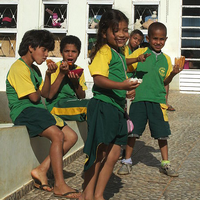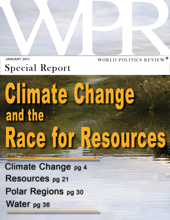
In December, Italy’s bilateral trade agreements with Russia drew media scrutiny. First, a Wikileaks cable release indicated anxiety on the part of various U.S. diplomats over Italian Prime Minister Silvio Berlusconi’s close friendship with Russia’s leaders, particularly Russian President Vladimir Putin. Then Italy’s largest energy company, Eni, renewed its extensive 2006 contract with Russia’s Gazprom, including plans to jointly build the South Stream pipeline across the Black Sea, as well as cooperation in drilling, transportation and personnel training. Critics in Italy and abroad believe the energy partnership between the two nations results as much from Berlusconi’s personal politics as from […]




